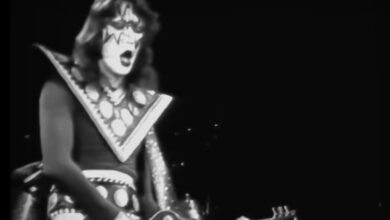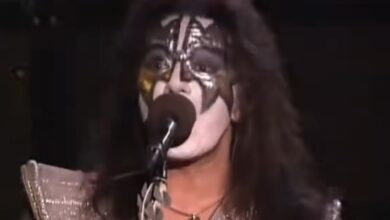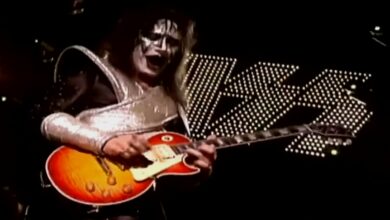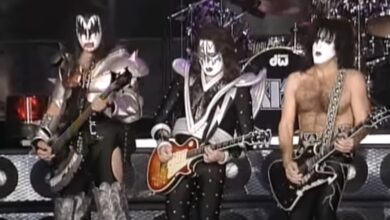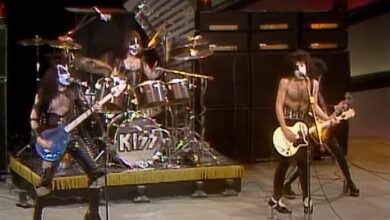The Last Riff: Sam Rivers’ Final Thunder at Leeds Festival 2025
On 18 October 2025, the rock world woke to devastating news: Sam Rivers, founding bassist of Limp Bizkit, had died at just 48. The band’s official statement described him as “our brother, our rhythm, and our heart.” No cause of death was released, though reports referenced his long fight with liver disease and the transplant that had once brought him back to the stage. Within hours, tributes poured in from peers and fans alike, sharing clips from his final tour appearances—especially one night that now feels almost mythic: Limp Bizkit’s Leeds Festival 2025 set on 24 August.
That Sunday evening in Bramham Park now stands frozen in collective memory. It was warm, windless, and loud—the kind of summer dusk that makes a field feel infinite. The lineup was stacked, but when the main-stage lights ignited at 19:25, the entire valley shifted its attention to one sound: the buzz of Rivers’s bass warming up through the PA. It was a rumble you didn’t just hear—you felt it in your chest, a low-frequency signature every longtime fan recognized immediately.
The set exploded to life with “Show Me What You Got,” and suddenly the years fell away. Fred Durst, cap low and grin wide, conducted a human storm; Wes Borland stalked the stage in kaleidoscopic armor; DJ Lethal scratched and warped the air. But it was Rivers—steady, economical, locked in with drummer John Otto—who gave the chaos its spine. Every groove felt anchored, every breakdown had weight. None of them knew this would be his final festival show, yet the way he played suggested a man savoring every decibel.
For the next hour, the band ripped through the staples that defined an era: “My Generation,” “Nookie,” “My Way,” “Rollin’,” and “Break Stuff.” The field became an ocean of limbs, dust, and laughter. Durst’s banter ping-ponged between irony and gratitude, thanking the UK for “still being down with the Bizkit after all these damn years.” Crowd-shot footage from that night, now replayed endlessly online, captures Rivers stepping to the mic during “Full Nelson,” mouthing backup vocals with a smile that said everything—alive, present, unstoppable.
Behind the spectacle, the band’s chemistry felt renewed. After decades of ups, downs, and lineup shifts, 2025’s Limp Bizkit sounded disciplined yet mischievous—a balance they’d been chasing since the turn of the millennium. Rivers’s bass lines weren’t flashy; they were foundational. In a genre built on swagger, he provided the weight beneath the bravado, the gravity that made the bounce authentic. At Leeds, you could sense that integrity in every note.
Fans remember that show for its volatility too. Moments before “Take a Look Around,” a stray inflatable flamingo sailed across the pit and landed at Durst’s feet. He kicked it skyward without missing a beat, the crowd roaring as the toy disappeared into the lights. It was classic Limp Bizkit theater—chaotic, funny, effortless. And somewhere behind the antics, Rivers kept time with an unbroken pulse, the quiet center of the storm.
Part of what made Leeds 2025 special was its timing. Earlier that month, the band had torn through Istanbul and Abu Dhabi, with viral clips—like Durst batting down a rogue drone—reminding the world that their unpredictability hadn’t dulled. By the time they reached England, the tour machine was running smooth. Road-worn yet tight, they looked like a group reliving their youth with the perspective only survivors earn.
Visually, the performance was a feast. Borland’s avant-garde makeup glowed under LED floodlights, Durst wore a baggy pastel tracksuit that clashed perfectly with the grit of the riffs, and Rivers, in black tee and jeans, stood out by doing less—no gimmicks, just groove. When “Rollin’” hit, the audience bounced as one body, a scene that, in hindsight, feels eerily like a farewell party none of them realized they were throwing.
Critics who reviewed the weekend later called Leeds the “definitive Limp Bizkit set of the decade.” It wasn’t because of innovation but conviction. After 30 years, the band’s absurdity had looped back around to sincerity. They weren’t pretending to be the angsty voice of youth anymore—they were veterans celebrating the ridiculous joy of still being here. Rivers’s quiet grin each time the crowd yelled his name summed up that feeling better than any quote could.
When news of his death surfaced less than two months later, many fans returned to that Leeds footage. Comments sections filled with time stamps: “3:18—look at Sam smile,” “7:42—listen to that slide,” “he knew.” Whether coincidence or cosmic poetry, his playing that night carried an extra tenderness in retrospect. Every slide, pop, and mute now sounds like a goodbye.
Beyond the sentiment, the technical side of that performance remains impressive. Rivers’s tone—warm, compressed, with just enough growl—cut through festival acoustics notoriously unfriendly to low end. Even from shaky phone videos, you can hear his EQ mastery, the balance between punch and space that kept Bizkit’s sound from collapsing into noise. It’s the sort of musicianship that’s easy to overlook until it’s gone.
The Leeds audience didn’t know they were witnessing history, but the emotion in the air suggested something larger. As the band launched into the finale, the lights bathed the field in red and white, and Durst shouted, “One more for the old days!” Rivers leaned back, head raised toward the night sky, hammering the final chorus like a heartbeat. That image—shared endlessly after his passing—has already become part of Limp Bizkit lore.
In the days that followed his death, colleagues from across the rock world posted tributes emphasizing not just Rivers’s talent but his gentleness. Borland wrote, “He was the pulse. Everything swung because of him.” Durst shared a photo from backstage at Leeds, captioned simply, “Forever our brother.” Fans began referring to the Leeds set as “The Last Riff,” and within hours, streams of the band’s catalogue spiked worldwide.
Looking back, that night at Bramham Park embodies everything Limp Bizkit ever represented—excess, humor, aggression, connection—and now, an unexpected grace. It’s the kind of set that lives beyond critique, because its imperfections make it human. Sam Rivers may have left the stage for the last time there, but the vibrations he sent through that field continue to echo in every fan who was lucky enough to feel them.
Because when the lights finally cut and the amplifiers cooled, what lingered wasn’t nostalgia—it was gratitude. Gratitude for noise, for absurdity, for resilience, and above all, for the quiet man at stage left who held it all together. The next time those opening bass notes of “My Generation” roll out anywhere in the world, there will be a heartbeat missing—and everyone will feel it.

